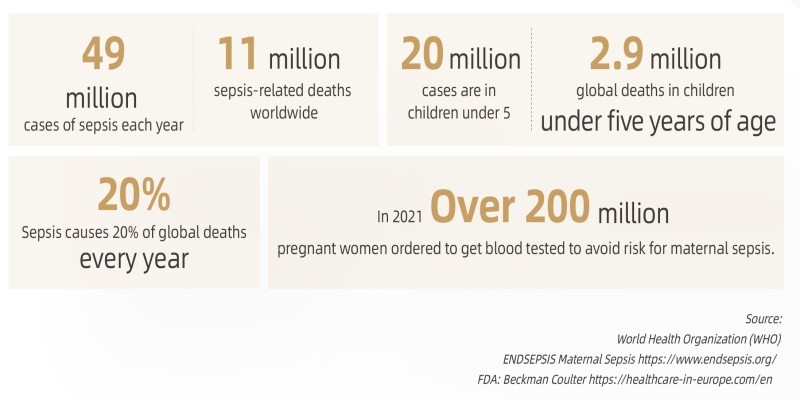
What is sepsis?
Sepsis is a life-threatening organ dysfunction caused by a dysregulated host response to infection. If not recognized early and managed promptly, it can lead to septic shock, multiple organ failure and death. It is most frequently a serious complication of infection, particularly in low- and middle-income countries where it represents a major cause of maternal and neonatal morbidity and mortality.
What are the symptoms?
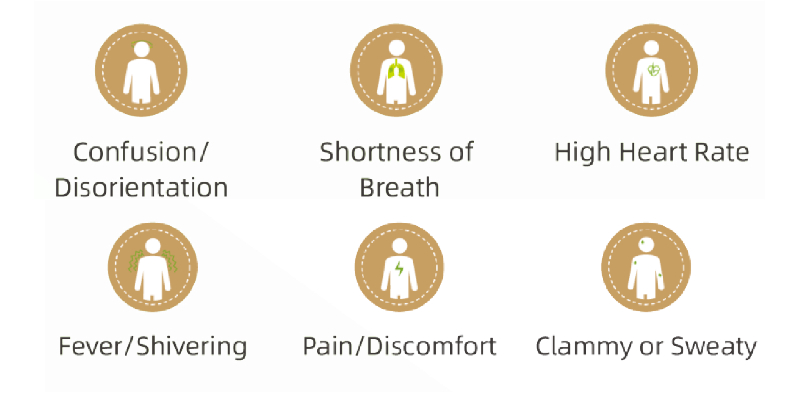
What causes sepsis?
Infections can put you or your loved one at risk for sepsis. When germs get into a person’s body, they can cause an infection. If you don’t stop that infection, it can cause sepsis. Bacterial infections cause most cases of sepsis. Sepsis can also be a result of other infections, including viral infections, such as COVID-19 or influenza.
Who is at risk?
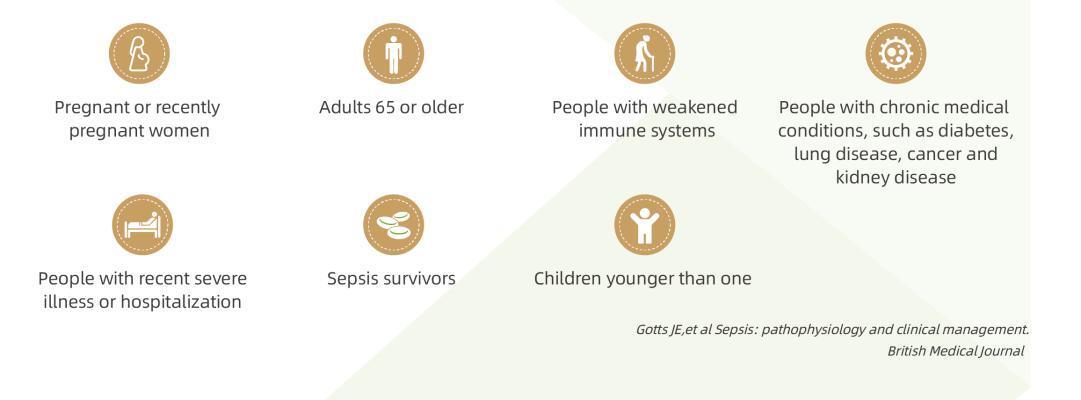
Clinical definition of sepsis
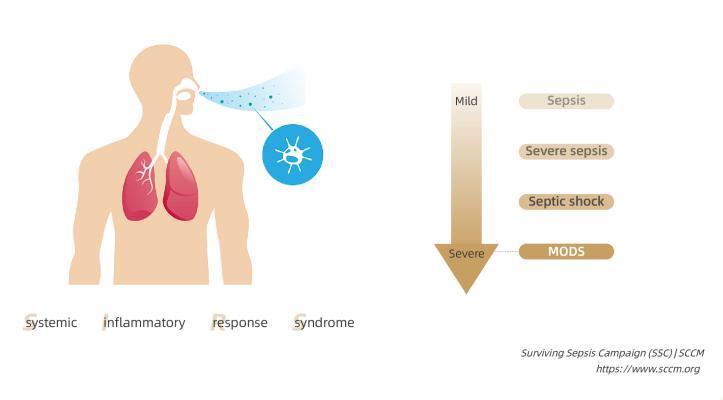
SIRS is defined by the satisfaction of any two of the criteria below
✔Body temperature over 38 or under 36 degrees Celsius.
✔Heart rate greater than 90 beats/minute
✔Respiratory rate greater than 20 breaths/minute
✔Leucocyte count greater than 12000 or less than 4000 /microliters
Diagnosis
Doctors perform lab tests that check for signs of infection or organ damage. Doctors also perform specific tests to identify the germ that caused the infection that led to sepsis. Early recognition, diagnostics to help identify a causal pathogen of infection leading to sepsis are important to guide targeted antimicrobial treatment. Once the source of infection is determined, source control, such as drainage of an abscess, is critical. Antimicrobial resistance (AMR) can jeopardize clinical management of sepsis because empirical antibiotic treatment is often required.
BIOTIME Sepsis Response - Procalcitonin PCT
Sepsis is a serious threat
Sepsis is common
• 6th most common principal diagnosis
• Hospital stays for sepsis more than doubled between 2000–2021
Sepsis is deadly
• Overall mortality rate: 14.7%
• In-hospital mortality rate: 16%
• 8x higher than overall inpatient rate
Procalcitonin provides critical biomarker information that can help increase the accuracy of early sepsis diagnosis and assess host response to bacterial infection.
✔Among several laboratory parameters, PCT has been shown to be the most useful
✔PCT showed the best performance for differentiating patients with sepsis from those with a systemic inflammatory response not related to an infectious cause
✔PCT is the only laboratory parameter shown to have made a significant contribution to the clinical diagnosis of sepsis
✔Compared to serum lactate, PCT has shown to be far more predictive for sepsis
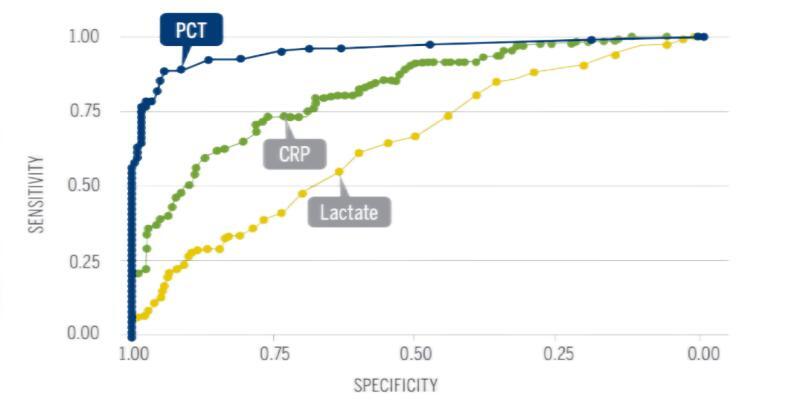
Clinical Utilities:
✔Diagnose sepsis and other bacterial infections, such as meningitis
✔Diagnose kidney infections in children with urinary tract infections
✔Determine the severity of a sepsis infection
✔Find out whether an infection or illness is caused by bacteria
✔Monitor the effectiveness of Antibiotics therapy
Reference
1.Centers for Disease Control and Prevention
2.World Health Organization. WHO Report on the burden of endemic health care-associated infection worldwide. 2017-11-21 15:11:22 2011.
3.XIAMEN BIOTIME BIOTECHNOLOGY CO., LTD. www.xiamenbiotime.com
4.Global Sepsis Alliance. Toolkits. (accessed 25 February 2020).
5.UK Sepsis Trust. Education. 2018. (accessed 25 February 2020).
6.Elixhauser A, et al.
7.Meisner M. et al., UNI-MED Verlag AG. 2010.
8.Harbarth S et al., Am J Respir Crit Care Med. 2001;164:396-402.
9. Muller B et al., Crit Care Med. 2000;28:977-983.
10. Simon L et al., Clin Infect Dis. 2004;39:206-217.
11. Rossum AM et al., Lancet Infect Dis. 2004;4:620-630.